CANNES – In 1896, i Modern Olympic Games.
The first edition, hosted by the city of Athens, was a success: 14 nations present, 241 participating athletes, 100,000 spectators at the opening and closing ceremonies.
Today we have more countries, more athletes, more disciplines, more spectators and… more technology. Technology that this year will also massively include artificial intelligence.
Artificial intelligence in the Olympics
“What do we do with it?”, you might think.
Well, actually a little bit of everything. AI – he explained to us Monica Livingston, Head of AI Center of Excellence di Intel – is intended to changing the experience of athletes, spectators, media and organizers.
But let’s take a step back.
This summer Paris will host i Games of the XXXIII Olympiad.
Which translated into numbers sound like this:
- 3 billion possible viewers at home;
- 15 million fans ready to fly to the French capital;
- 10,500 athletes;
- 28 different sports;
- 38 locations for the various competitions.
If your head is already spinning, I understand.
For those who organize all this it is an incredible amount of work, for the fans it can be a frenzy to follow everything – both on site and from home -, for the athletes it is one of the highest and most stressful moments of their career.
However, AI can help all of them, also because this event translates into data, data that can be collected, processed and used to improve everyone’s experience, from people sitting on the sofa at home to those who will have to run 42 km.
AI for Olympic athletes
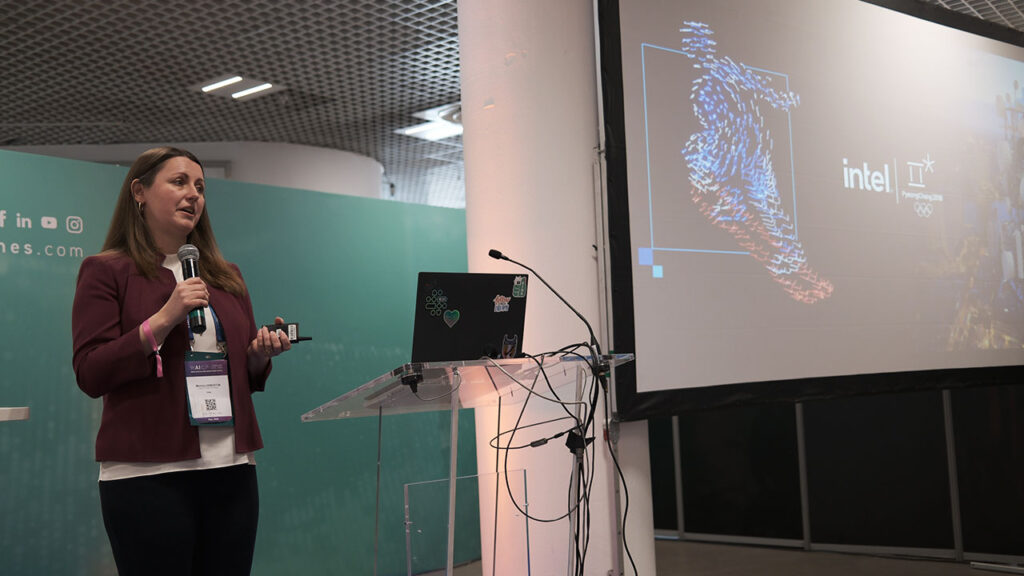
Standing on the Demo Stage of World AI Cannes Festival, Monica Livingston explains that Paris 2024 will not be the first Olympics to exploit artificial intelligence. During the Tokyo demonstration, held three years ago, Intel took advantage of its 3D tracking technology, which monitors 20 points of the human body and recovers a wealth of data on posture, speed, strength…
“If, for example, we recorded an athlete during training, the tracker could tell him how close to perfection he is for that specific exercise, or how close he is to the perfection required of an Olympic athlete. This for help participants improve their performance using a set of data that captures their current state.“
There is more? Of course yes.
Intel works closely with a company called AI.io. If it doesn’t mean anything to you, we understand: it’s not known to the general public and the name suggests nothing of what they do.
A few seconds on their website, however, is enough to understand the purpose of the company: applying artificial intelligence to sport.
We find again a tracker for athletes, extremely complex and accurate, but also un’app, aiScout, which you can download for free right now and which allows footballers to show off their skills, be analyzed and then be discovered and signed by any team in the world.
Ai.io also has a real truck, theaiLabs, which is equipped to scan and analyze data collected from athletes. Think about that in an hour a team of 24 players can sift through it.
We are used to thinking that the success of an athlete is based on hard work, training, talent and physical ability, but in 2024 technology also plays an important role, which can no longer be ignored.
A better experience for fans too
For a fan, the Olympic Games must be a unique experience, both on site and at home.
In short, what memory could you possibly have if you spend your time in queues? What if you never see what interests you? What if you don’t know where to go?
All problems that artificial intelligence can solve.
“There is a company called WayTime that offers a tool that analyzes the length of queues at any point in the stadium,” he explains Jean-Laurent PhilippeIntel’s EMEA CTO, alongside Monica Livingston on the WAICF Demo Stage.
To do what? To help organizers, with announcements or via the app, a point out to the spectators where there is less queue to enter the stadium, which booth is less crowded to get a drink or food, which bathroom it would be best for them to go to so as not to wait. At the same time they can know what the specific waiting time is for that queue.
Yes ok, but what about privacy? Naturally it is always in first place, with the cameras necessary for these analyzes being positioned overhead so as to never record the faces of the people present.
“All this works with Intel technologies like Gaudì and Xeon.”specifies Philippe.
However, viewers can also benefit from artificial intelligence on the entertainment front, with the 3D Tracker which could be used to compare the performances of the people present with those of the athletes to create fun games and perhaps help them understand what it means to get to that level of sporting excellence.
Even the opening and closing ceremonies can be transformed into a breathtaking experience with AI. I mean, we all remember the drone show in Beijing, right?
For those who stay at home, there are the media and yes, they too can benefit from artificial intelligence.
AI for the media
Think about all those times you’ve watched the Olympics.
There is definitely a sport that you like more than the others. I, for example, love swimming and diving. However, I challenge you to keep track of all the races to tune in to the right channel at the right time. It’s very difficult.
So, what do we do?
The big broadcasters – aka the TVs – can feed the audio/video signal to AI which is able to extract information from what it sees and capture the highlights of each event, highlights which can then be made available to viewers.
“This – underlines Philippe – happens in real time”.
So no waiting but just a great job of personalizing the experience for fans.
The technology also allows the creation of what is called digital twin, that is, a digital twin of the various locations where the Olympics take place. This helps the media understand where to position themselves, how to run the cables for the cameras, where the journalist should be located and so on. Without going there first.
Among other things, the digital twin can also be useful to the public, for example by creating a model that can be exploited for an application that allows blind people to move within the various spaces using only a voice guide.
Artificial intelligence at the Olympics: a team exercise
The 2024 Olympics are coming, and it is clear that they will not be like the 1896 Olympics.
Not only for numbers, not only for the city that hosts them, not only because times and disciplines have evolved but also because today we have an additional tool, which is artificial intelligence.
It is clear, however, that all this does not only apply to the Paris Olympic Games. We used AI in Beijing and Tokyo, we will use it in Los Angeles and we will use it more and more for a ton of other events of this magnitude. But not only. All the technologies we discovered during Intel’s speech at WAICF can actually be applied to much more common situations: the queue at the supermarket, the highlights of Sunday football matches, the creation of virtual duplicates for the blind… The potential is immense but clearly one company cannot do everything alone. To quote Monica Livingston, “AI is a team game, like sport.”






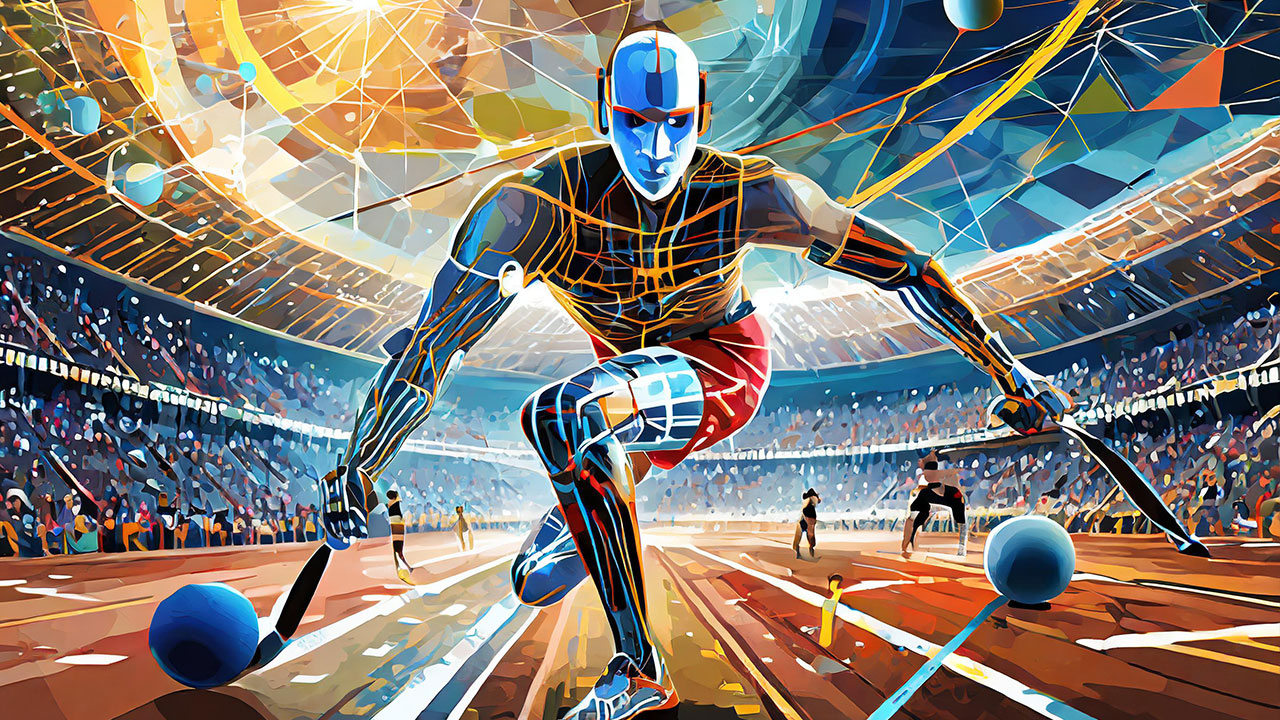
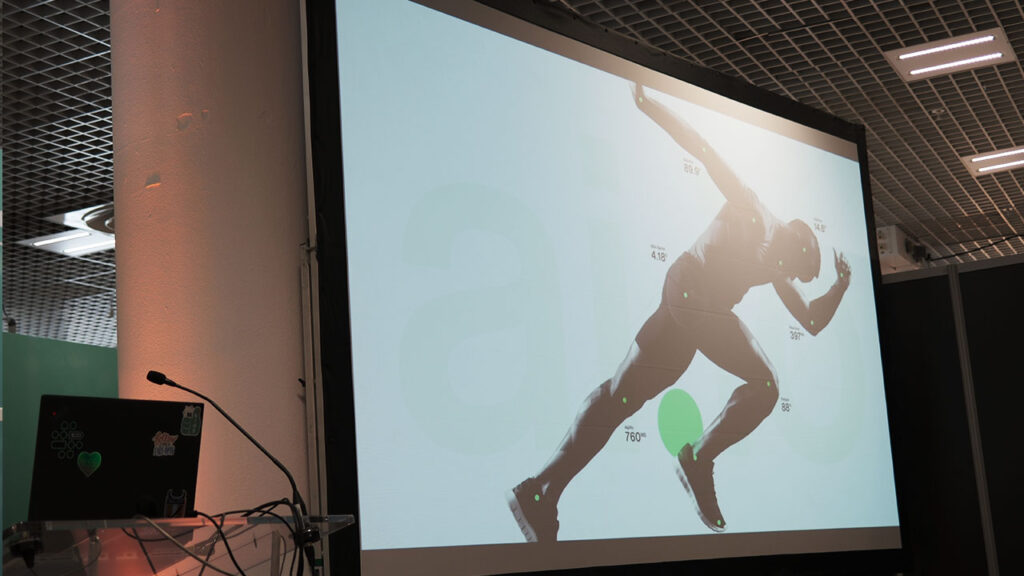
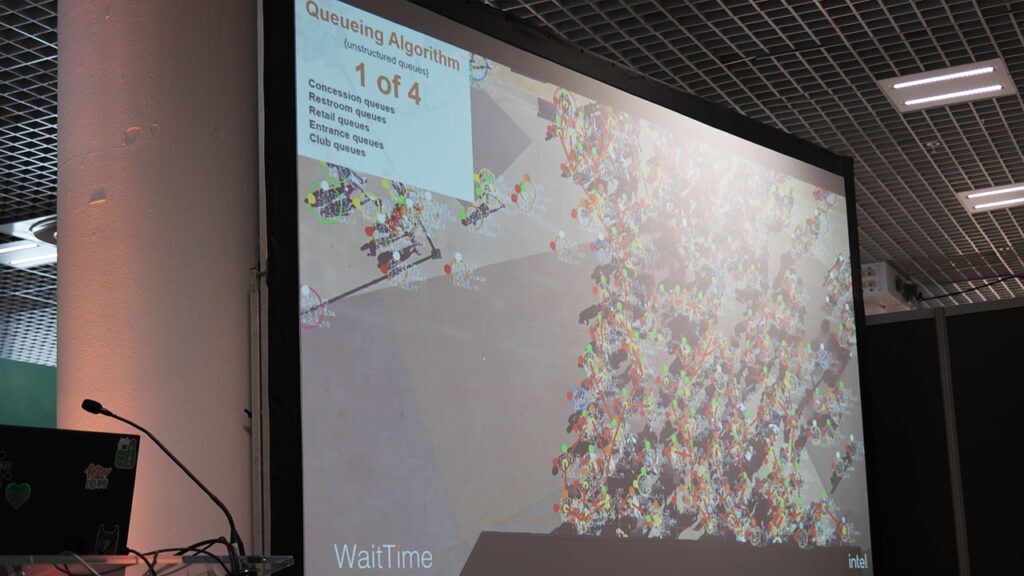
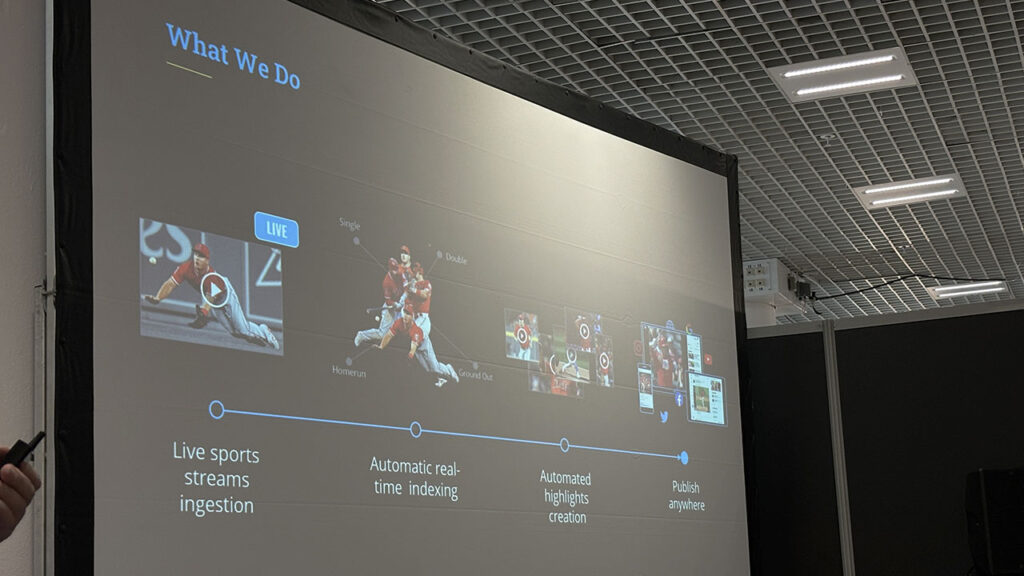









Leave a Reply
View Comments